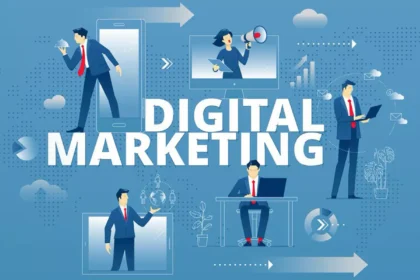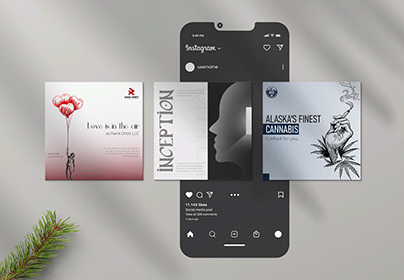Introduction: Rethinking the Social Event Landscape
The digital transformation of the social scene has been unfolding rapidly, with mobile applications playing a central role in how people organize, discover, and attend events. Among the emerging players in this field, Wimbo has positioned itself uniquely by bridging social networking with event engagement. Unlike traditional platforms that focus on either online interaction or offline event management, Wimbo integrates both. Its innovative features empower users to seamlessly connect with people through shared interests while facilitating the discovery and participation in local events. This article explores the significant impact Wimbo is making on event attendance and organization, offering insights into how technology is redefining social participation in the real world.
The Shift from Static Invites to Dynamic Discovery
Traditional event organization often relies on invitations, calendar notifications, or third-party event platforms. However, these methods can feel impersonal and limited to existing circles. Wimbo changes this model by embedding event discovery within the fabric of its social platform. Users don’t just scroll through event listings; they interact with them dynamically based on their interests and social activity. Events are not merely posted; they’re part of an interactive feed where people can swipe to engage, connect with other attendees, and plan participation in real time. This dynamic discovery encourages spontaneous involvement and reduces the friction typically associated with event attendance.
Empowering Organizers with User-Centric Tools
Wimbo has developed tools that simplify event creation, promotion, and management for both casual users and professional organizers. The platform allows users to create events in just a few steps, attach relevant tags, and choose visibility settings. Events can be public, private, or interest-specific, ensuring the right people see them. Organizers also gain access to insights such as attendee numbers, engagement rates, and demographic data, enabling more targeted outreach and better planning. These tools democratize event organization, making it accessible not just to brands or companies, but also to individuals who want to bring people together around common passions.
Boosting Attendance Through Interest-Based Algorithms
One of Wimbo’s key differentiators is its intelligent matching algorithm, which connects users to events based on shared interests. When users set up their profiles, they can select preferences ranging from hobbies and causes to professional interests. These preferences inform the event feed they receive. Rather than broadcasting events to a generic audience, Wimbo ensures each event reaches those most likely to attend. This alignment between user intent and event content boosts attendance and engagement. It also helps organizers avoid the common issue of low turnout due to poor audience targeting, ensuring more meaningful participation.
Facilitating Spontaneous and Localized Engagement
Spontaneity is often missing in traditional event platforms, which require advance planning and formal registration. Wimbo brings back the excitement of unplanned socialization. Its proximity-based discovery feature allows users to find events happening nearby — sometimes even within minutes. Whether it’s a casual meetup, an open mic night, or a community-driven activity, users can see what’s happening in real time and decide to join on the spot. This immediacy enriches the urban social fabric, encouraging users to step out of their routines and engage with their local community on a more consistent basis.
Turning Attendees into Co-Creators
Wimbo encourages a participatory culture where attendees are not passive consumers but active co-creators. Through the app, users can contribute to events by inviting others, suggesting changes, posting updates, and even modifying small aspects of the event if permissions allow. This level of interaction strengthens commitment and fosters a sense of ownership among participants. Events become more adaptable, evolving in response to group dynamics and user feedback. The result is a more engaging, inclusive experience where users feel empowered rather than just invited.
Building Micro-Communities Through Events
Another notable impact of Wimbo is its ability to create micro-communities centered around recurring or themed events. For example, a monthly hiking group, local tech talks, or niche interest meetups can gain traction on Wimbo as users begin to follow certain event organizers or tags. Over time, these micro-communities solidify into active user groups, sharing not just events but also ideas, discussions, and social support. Wimbo becomes more than a calendar tool it evolves into a hub for community growth and sustained engagement.
Encouraging Hybrid and Multi-Format Events
The post-pandemic world has brought hybrid events combining physical and digital participation into mainstream attention. Wimbo accommodates this evolution by supporting event formats that include live streaming, digital participation, and on-site check-ins. Organizers can post updates in real time, share multimedia content, and encourage interaction between virtual and in-person attendees. This flexibility expands the reach of events and makes them more inclusive. People who might not be able to attend in person due to distance, disability, or time constraints can still participate meaningfully, enhancing overall accessibility.
Social Validation and Peer Influence on Attendance
One of the most powerful motivators for event participation is peer influence. Wimbo leverages this by showing users who among their contacts or matched profiles is attending a particular event. When users see that friends or like-minded individuals are planning to attend, they are more likely to join. This kind of social validation fosters trust and reduces the uncertainty that often accompanies new or unfamiliar events. The swipe-based interaction also allows users to connect with potential attendees beforehand, making the transition from online to offline more comfortable and inviting.
Real-Time Interaction and Feedback
Traditional event platforms often lack a real-time engagement loop. Wimbo fills this gap with features that allow users to comment, post, and chat before, during, and after events. Organizers can send out live updates, reminders, or last-minute changes, while attendees can share impressions and ask questions. This instant feedback loop keeps participants engaged and informed, increasing satisfaction and reducing the chances of logistical misunderstandings. Post-event, Wimbo provides space for reviews and recommendations, allowing future events to benefit from continuous improvement based on user experiences.
Insights for Smarter Planning and Growth
Wimbo equips organizers with post-event analytics that go beyond attendance numbers. They can access engagement data such as interaction levels, content shares, and peak activity times. These insights are invaluable for understanding what worked, what didn’t, and how future events can be optimized. For community builders, this data serves as a blueprint for scaling efforts, identifying trends, and catering to evolving user preferences. This analytical backbone transforms event planning from guesswork into a data-informed strategy.
Strengthening Event Safety and Trust
Safety and trust are paramount, especially when organizing public or semi-private events. Wimbo incorporates safety features such as identity verification, content moderation, and user reporting mechanisms. Attendees can view verified profiles and event history to assess legitimacy and comfort level. Organizers can also vet attendees or restrict events to trusted users. These layers of accountability create a secure environment where both new and seasoned users feel comfortable participating. It ensures that while events are inclusive, they are also curated to minimize risks and enhance trust among attendees.
The Future of Events in a Wimbo-Enabled World
As Wimbo continues to evolve, its influence on event culture is expected to deepen. The platform is exploring new features such as AI-driven event recommendations, immersive AR previews for venues, and integrations with calendar apps and transportation services. These innovations will further streamline the process of attending and organizing events, making them more intelligent, contextual, and convenient. Wimbo’s vision is clear: to transform every interest into an opportunity for connection and every gathering into a meaningful experience.
Conclusion: From App to Ecosystem
Wimbo is not just redefining how events are discovered and attended it is shaping an entirely new event ecosystem. By aligning personal interests with social opportunities, the app transforms individual curiosity into communal action. It empowers everyday users to become event creators, community leaders, and active participants in their social environments. With every feature focused on fostering connection, participation, and relevance, Wimbo is making a lasting impact on how we gather, engage, and grow together in both digital and real-world spaces.




